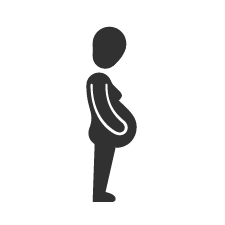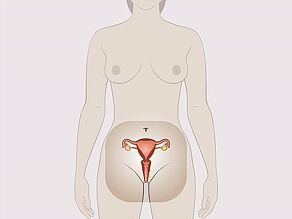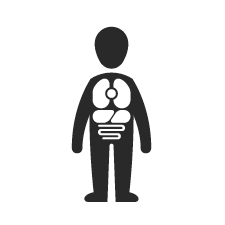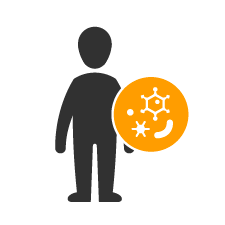The hormonal IUD is a contraceptive method. The hormonal IUD is a t-shaped plastic tube. It contains a hormone.
How the hormonal IUD works
The hormone makes it harder for the sperm in the semen to move. The sperm will not be able to get to the uterus or the mature egg. Due to the hormone, the egg cannot implant itself in the uterine lining.
- A gynaecologist will insert the IUD into your uterus in the first seven days of your cycle. This can be painful. If it is painful, the doctor can offer you a pain reliever.
- The hormonal IUD is effective for three years. There are also hormonal IUDS that work for five years. After three or five years, the IUD must be replaced.
- After the hormone spiral has been inserted, you will feel two short threads far up in the vagina. They hang out of the cervix . This means that you can always feel to see whether the IUD is still properly in place by inserting a finger into your vagina.
Reliability
The hormonal IUD is very reliable when it is properly placed. Sometimes the IUD can slip. It is a good idea to feel for yourself every once in awhile to see whether the IUD is still in the proper position.
Impact on your health
The hormonal IUD contains a hormone, which not all women can tolerate. Some women get acne, their breasts become sensitive or they get a headache. These side effects usually go away by themselves. Consult a doctor if you have unpleasant symptoms that do not go away.
In some cases it is better to choose another method of contraception. For example, if you have a uterine disease, heart disease, breast cancer or thrombosis. Please ask your doctor for advice.
Your menstrual period is usually lighter and can even go away completely.
If you want to get pregnant, you can have the IUD removed.
Protection against STIs and HIV
The hormonal IUD does not protect you against STIs or HIV. Only a condom can protect you.
The copper IUD
The copper IUD is a contraceptive method. The copper IUD is a t-shaped plastic tube. A copper thread is wrapped around the IUD.
How the copper IUD works
- The copper IUD limits the mobility of the sperm.
- It prevents the egg from implanting itself in the uterine lining.
A gynaecologist will insert the IUD into your uterus in the first seven days of your cycle. This can be painful. If it is painful, the doctor can offer you a pain reliever.
The copper IUD is effective for at least three to five years. After three to five years, the IUD must be replaced.
After the IUD has been inserted, you will feel two short threads far up in the vagina. They hang out of the cervix. This means that you can always feel to see whether the IUD is still properly in place by inserting a finger into your vagina.
Reliability
The copper IUD is very reliable when it is properly placed. Sometimes the IUD can slip. It is a good idea to feel for yourself every once in awhile to see whether the IUD is still in the proper position.
Impact on your health
The copper spiral does not contain any hormones. The copper IUD will not make you any less fertile. If you want to get pregnant you can have the IUD removed.
Your menstrual period can become a little heavier and more painful. In the beginning, you may have some bleeding between menstrual periods. This means you can bleed more often than every four weeks. Sometimes you may also have pain in your abdomen before or after your monthly period.
Protection against STIs and HIV
The copper IUD does not protect against STIs or HIV. Only a condom can protect you.
















